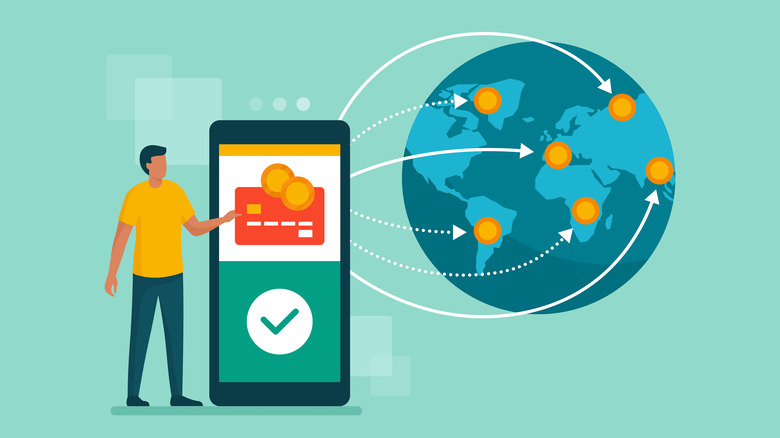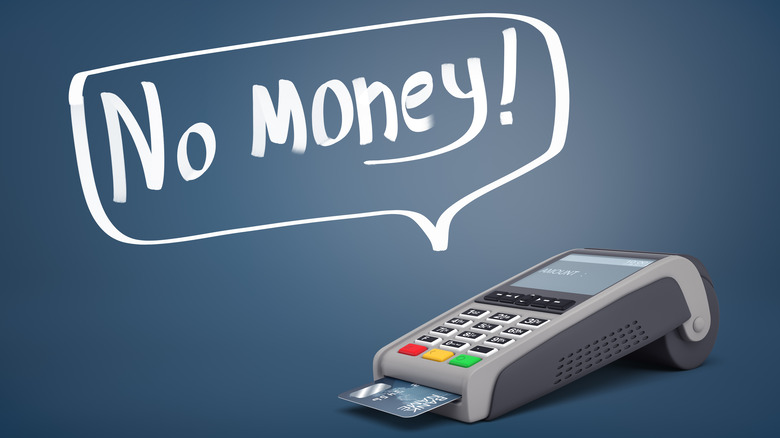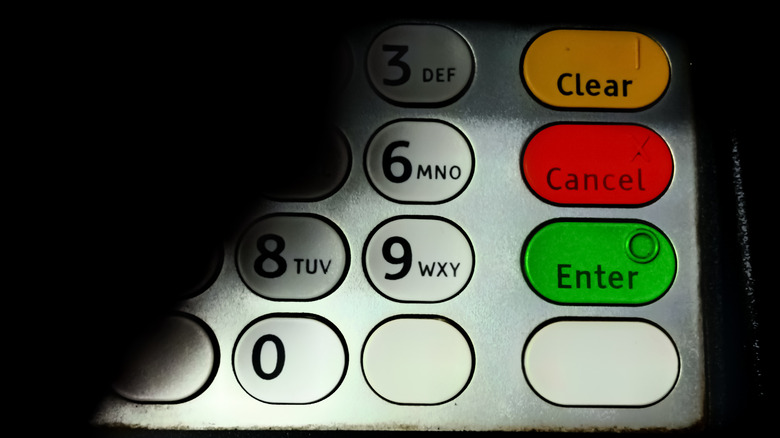Here's Why You Should Never Forget To Tell Your Bank You're Traveling
You've booked your flight, reserved accommodations, quiet-bragged on your email away message, and tripled-checked your luggage. You're finally ready for that dream two-week vacation. To complete the pre-trip checklist, go ahead and call your bank. Not the sexiest of tasks, but tell your financial institution where you're going, when you're going, and for how long. Trust us, it's worth the investment.
For soon-to-be travelers, there's a tendency to focus on the fun preparations. You create sightseeing itineraries, read restaurant reviews, and check out local events while ignoring the less-exciting tasks. And maybe there's something about the psychology of calling your bank. In essence, you're admitting something bad could happen.
But maybe you're an optimist. After all, you've traveled all over the world without issue. Awesome! Let's keep it that way. According to the Federal Trade Commission, they received more than 73,000 reports of travel-related scams in 2020, per AARP. Yes, in 2020, while the world was locked down and no one was traveling, they received over 73,000 reports. Call your bank.
Call your bank to geolocate your spending
Fortunately, financial institutions have become increasingly better at spotting scams and preventing fraud. Unfortunately, travel scammers have become increasingly better at creating scams and committing fraud, says Business Insider. So, when you're traveling, you're in the middle of an ongoing battle between your bank and someone's bad intentions.
Here's the rub. In an effort to protect you, it's possible your bank mistakes you for a scammer. For example, you've just landed in Riga, Latvia. Before arriving at your hotel, you stop to get a few essentials. (Your skin can't handle the dry air.) You then check into the hotel, dab a bit of moisturizer on your face, and find the closest restaurant still open.
After a bit of speck and potatoes, you try to pay your bill, but your card is repeatedly declined. Your bank's fraud detection team, in their diligence, stopped all foreign transactions. And why wouldn't they? Latvian moisturizer isn't a typical expense for you. If you're lucky, you can quickly resolve the issue. If not, you agree to help the restaurant sweep, mop, and take out the trash.
Obviously, this example is wildly too specific to be true. Nevertheless, not all restaurant owners will be as understanding as Sofija and Artūrs. To avoid a similar scenario, simply call your bank before traveling and tell them where you're going.
Call your bank to better combat scams
Another reason to call your bank before traveling is to combat actual, factual fraud. If something happens on your trip, whether it's a dubious overcharge, a credit card-skimming scam, or some kind of identity theft, you're better positioned to dispute fraudulent charges if your bank knows you're traveling.
It's no secret that tourists make easy marks for travel scams. After all, these types of scams couldn't exist without traveling tourists. And while letting your bank know you're traveling will help, it's a good idea to familiarize yourself with an area's common scams before arriving.
Also, always leave yourself with a financial out if something does happen. Use a mix of credit cards and cash, or leave backup funds in a hotel safe. These are both tried-and-true travel best practices. Optimism is one thing. Prudence is another. So, give your bank a quick phone call. The small action can save you travel-related headaches, money, and embarrassing dining experiences.


